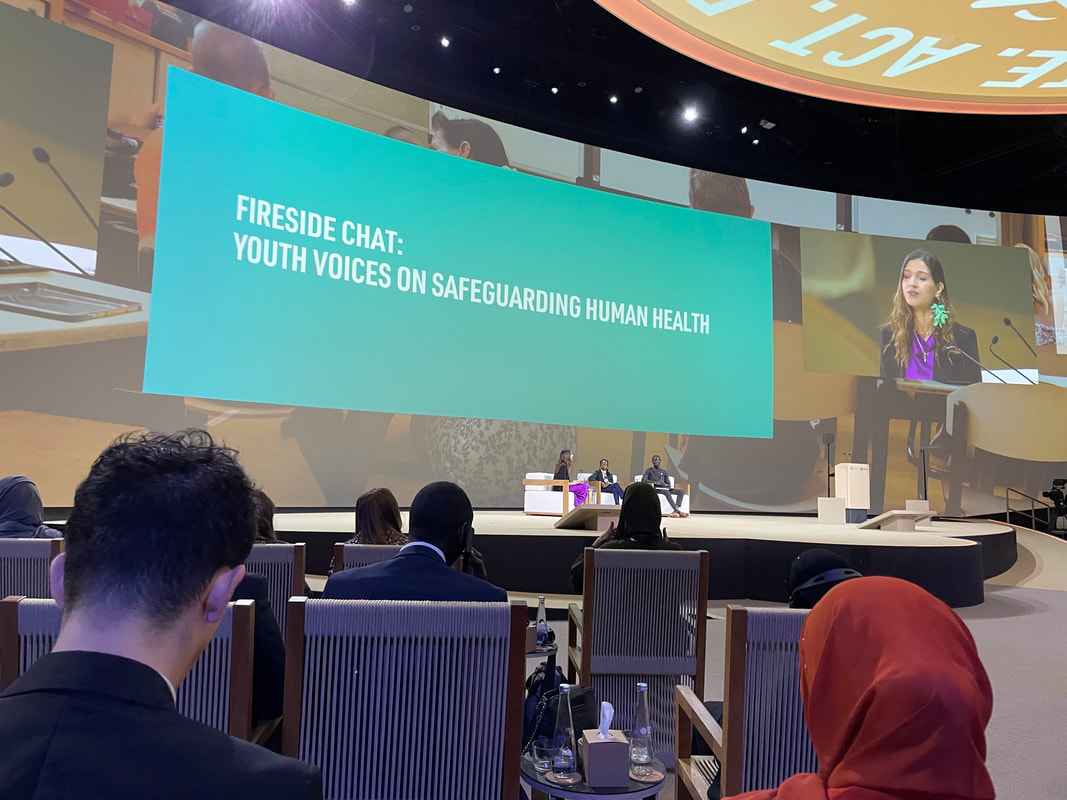|
Stevie Fawcett
[email protected] For the first time ever, public health took center stage at a COP conference during COP28’s Health Day on December 3rd, 2023. Announcements made during Health Day included a one-billion-dollar commitment toward climate health, which seeks to prioritize health benefits of the people most affected by climate change. These funds are meant to support the Declaration of Climate and Health (1), which calls for action toward adaption and resilience related to climate health. This declaration, which has been signed by 148 countries, represents the most significant document from a COP conference that recognizes the importance of health in the context of climate change. This declaration outlines the integration of health into the climate strategies of each of the signing countries, including specific actions meant to be taken by each country. For the United States, the committed goals included decarbonization of the health sector and improving medical assistance to other countries in responding to health crises related to climate change. Beyond the discussions and announcements put forth during Health Day, COP28 also provided a platform for scientists and health workers to speak about how health is impacted by climate change in different parts of the world. These conversations went beyond the health issues I was personally aware of prior to my attending at COP28, and speak to the immensity of issues that stem from climate change. Below, I have highlighted some of the most significant topics that did not receive as much attention during Health Day. Mental Health: Many people, especially youth, commonly experience intense anxiety and stress in response to climate change. These stressors are also more likely to compound over time in underserved populations, as youth are more likely to experience traumatic events during development, such as forced relocation or the disruption of nature-based livelihoods. In indigenous populations, the destruction of nature caused by climate change can also destroy one’s sense of cultural identity. This has a huge impact on suicide rates and general mental health in indigenous communities. The mental health of climate leaders is also an important topic that is often neglected. These leaders experience an intense amount of stress and anxiety around their work, which can negatively impact productivity and happiness. Climate Change in Medical Schools: The production of fossil fuels not only alters the natural environment, but also increases risks of several diseases. Therefore, in the medical field, the production of fossil fuels is self-sabotage. This concept is central to climate health and has garnered significant support from students and staff at medical schools around the world. Many of the health leaders at COP28 are looking to incorporate climate health into the curriculum of medical schools, which in turn should teach the future doctors of the world important strategies to treating climate-related disease and decarbonizing medical practices. Educating the Public: The dangers of climate-related diseases are increasing, but not everybody knows this. Yet another facet to climate health is the ability to inform the public of the risks associated with climate change in the context of public health. Education also looks drastically different in different areas of the world. For instance, disease-carrying mosquitos are an important topic in the global south, while countries such as the United States may want to focus on the health impacts of natural disasters like wildfires and floods. 1 - https://cdn.who.int/media/docs/default-source/climate-change/cop28/cop28-uae-climate-and-health-declaration.pdf?sfvrsn=2c6eed5a_3&download=true
0 Comments
Leave a Reply. |
Categories
All
Archives
March 2024
|

 RSS Feed
RSS Feed
